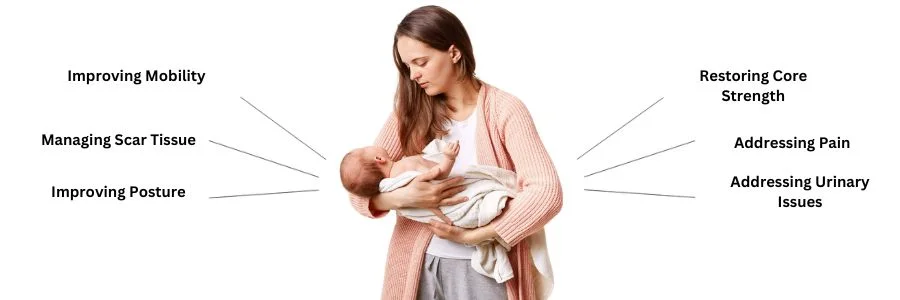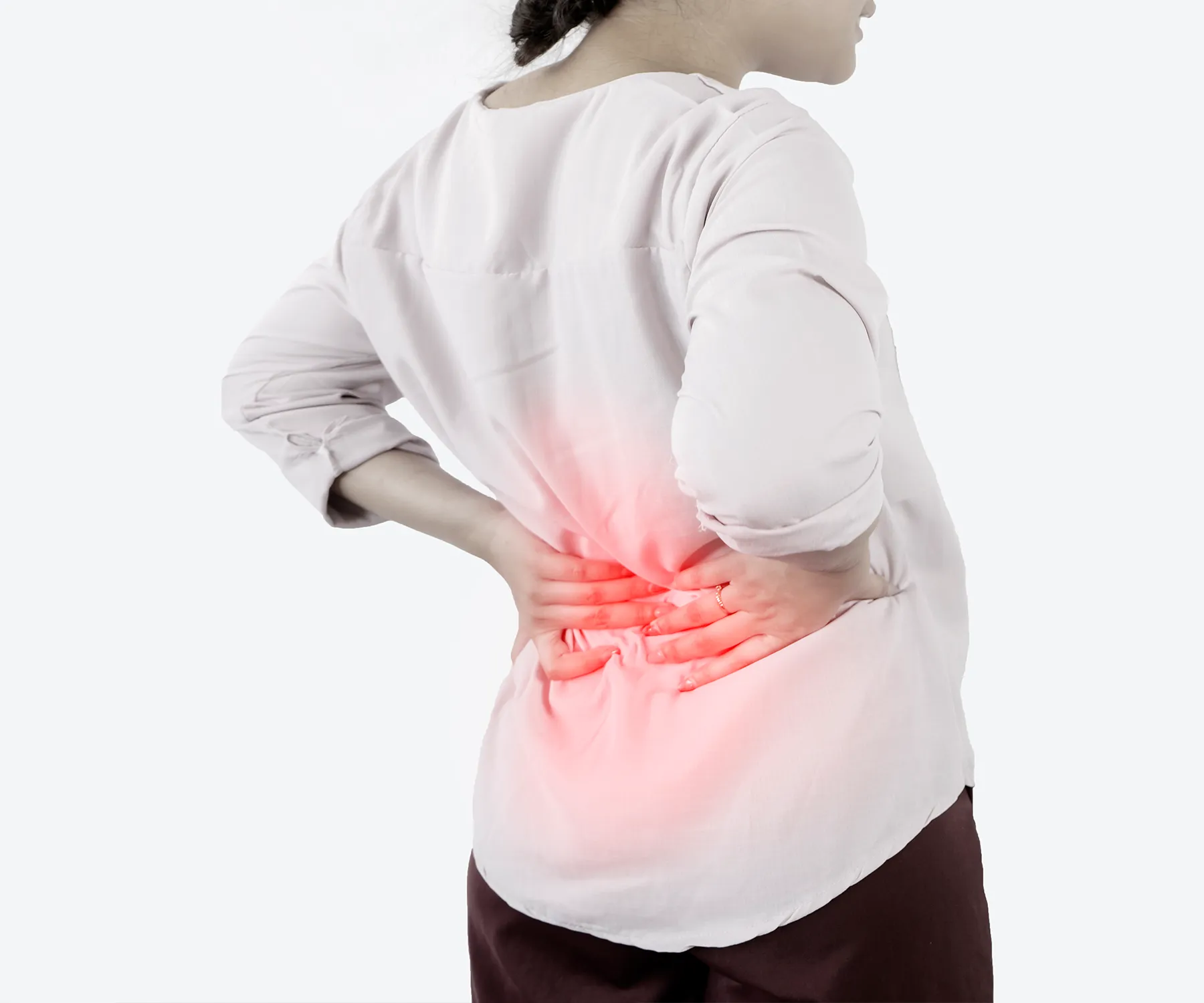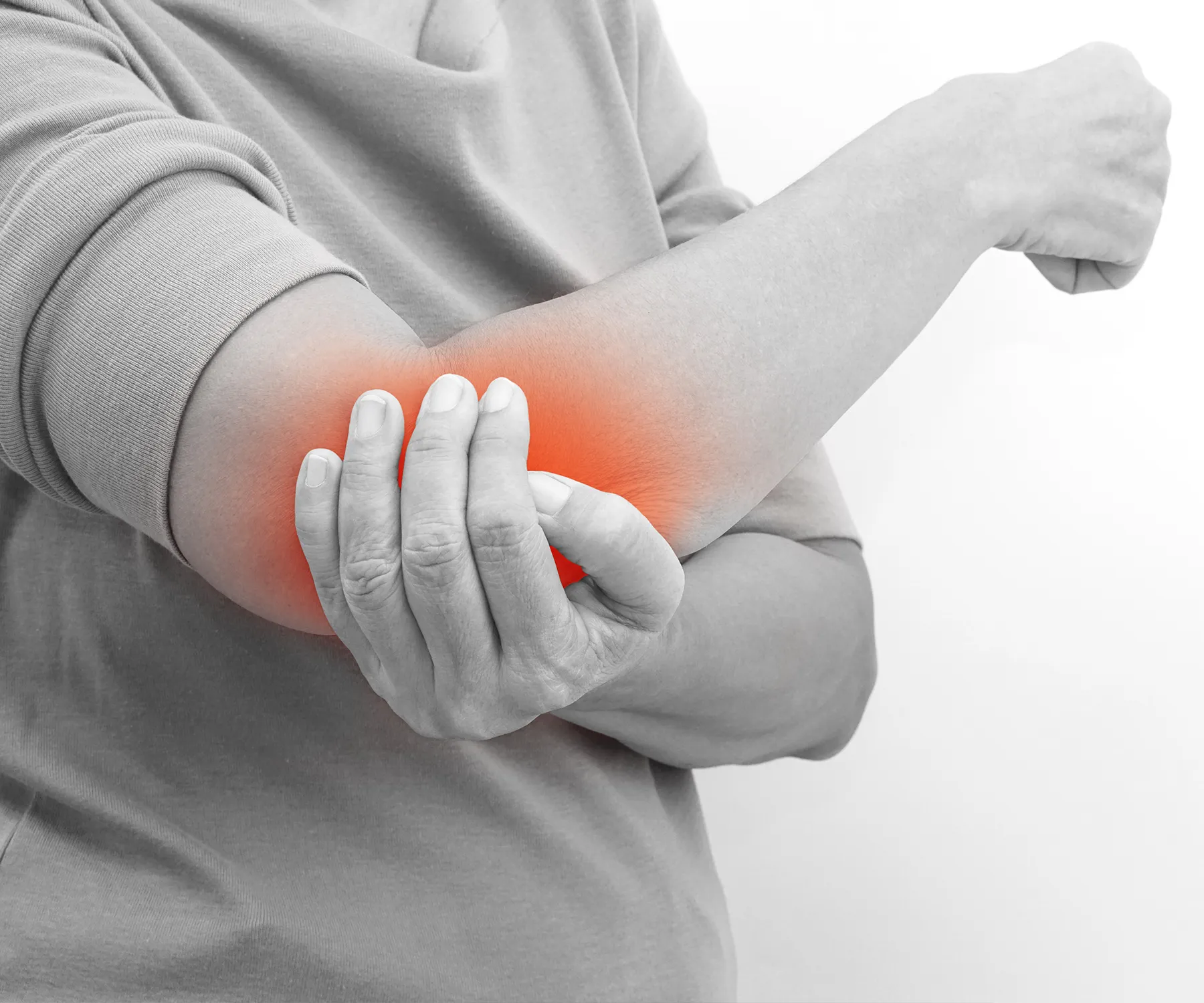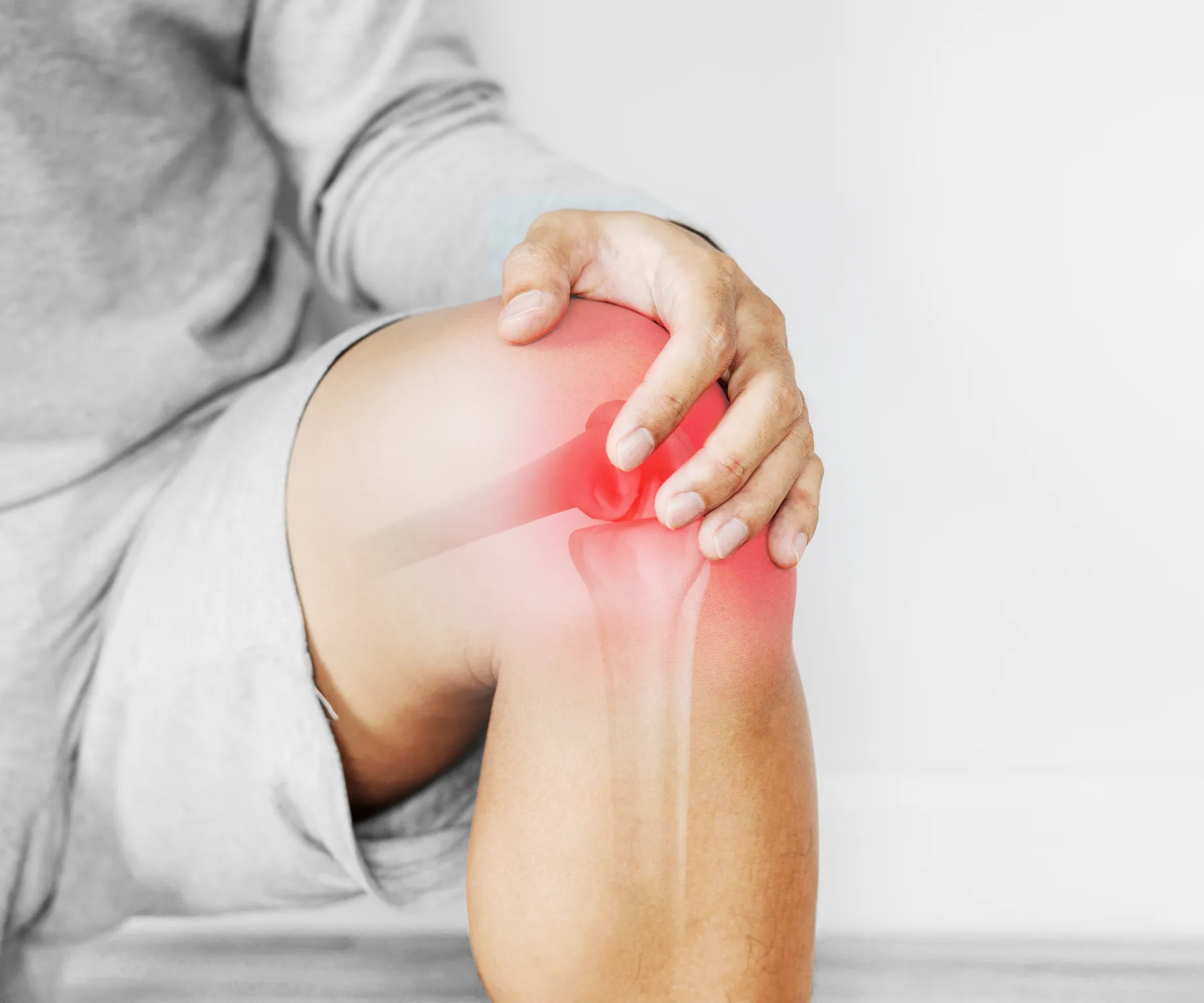
Embracing Motherhood and Self care Post Delivery
Urinary incontinence is most prevalent among women who have undergone vaginal delivery, with a rate of 26.84%.
In the post delivery stage (postpartum/postnatal), it is essential for women to focus on self care while embracing their beautiful motherhood. Physiotherapy for mothers is an excellent solution to maintain a balanced, stress-free, pain-free life while caring for your child.
Experiencing unforeseen challenges in your postnatal stage?
Emotional Challenges
Feelings of inadequacy, stress, and adjusting to the demands of motherhood
Diastasis Recti
Abdominal muscles separation, causing a visible bulge and weak core after childbirth
Back and Pelvic Pain
Postnatal discomfort due to pregnancy’s impact on lower back and pelvis
Fatigue
Lack of sleep and the physical demands of caring for a newborn can lead to extreme fatigue
Weak Mobility
Limited movement post-birth from muscle imbalances and joint stiffness
Urinary Incontinence
Weak pelvic floor muscles and pressure from childbirth can lead to urinary incontinence
Stress & Lack of Sleep
Newborns have irregular sleep patterns, which can disrupt the mother’s sleep as well, causing stress
Body Changes
Many women experience changes in their body shape and weight after childbirth, and get scars.
Why do women experience emotional and physical changes post delivery?
Women experience emotional changes after giving birth as a result of hormonal changes, such as decreased estrogen and progesterone, which can cause mood swings and postpartum blues. Having a baby and becoming a mother require psychological adaptations. The effects of pregnancy on the body, like exhaustion, pain, and hormonal changes, are physically recovered, which contributes to the combined mental and physical alterations in the postnatal phase.
Physiotherapy for mothers help get back to normal by

FAQs related to Postnatal Care
What is postnatal physiotherapy, and how can it benefit me after childbirth?
Specialized exercises and methods are used in physiotherapy for mothers to speed up recovery from childbirth. It can facilitate a quicker postpartum recovery by aiding in the recovery of core strength, reducing discomfort, addressing pelvic floor problems, and directing safe exercise resuming.
What is postnatal physiotherapy, and how can it benefit me after childbirth?
Specialized exercises and methods are used in physiotherapy for mothers to speed up recovery from childbirth. It can facilitate a quicker postpartum recovery by aiding in the recovery of core strength, reducing discomfort, addressing pelvic floor problems, and directing safe exercise resuming.
How soon after giving birth should I start postnatal physiotherapy?
It is advised that physiotherapy for mothers who have delivered recently should begin within the first six weeks following childbirth, while the exact timing will vary depending on a person’s delivery technique and level of recuperation. Early consultation with a physiotherapist enables personalized advice depending on your requirements.
What are some common postnatal issues that physiotherapy can address?
Diastasis recti, pelvic floor dysfunction, back and pelvic pain, decreased mobility, and scar tissue issues brought on by pregnancy and childbirth can all be treated with postnatal physiotherapy.
Can postnatal physiotherapy help with diastasis recti and pelvic floor problems?
Yes, postnatal physiotherapy provides strategies and exercises to strengthen the pelvic floor, close diastasis recti, and enhance overall core stability. These treatments can help to improve muscular function and lessen associated problems.
What exercises or techniques can I expect to do during postnatal physiotherapy sessions?
Exercises to strengthen the core and pelvic floor muscles, stretches to increase flexibility, and advice on proper posture and mobility are frequently included in postnatal physiotherapy sessions. The particular regimen is adapted to your requirements and development.
How does postnatal physiotherapy help with back and pelvic pain relief?
By identifying muscular imbalances, offering exercises to strengthen supporting muscles, providing manual therapy to ease pain, and educating patients about good body mechanics, physiotherapy treats back and pelvic pain.
Is it safe to resume regular exercise after childbirth, and how can a physiotherapist guide me?
Exercise after childbirth should be resumed with caution. A physiotherapist can assess your health, suggest a safe exercise progression, and make sure you stay away from anything that could injure you or slow down your recovery.
Can postnatal physiotherapy assist with scar tissue management after a cesarean section?
By utilizing methods that encourage scar tissue mobility, lessen adhesions, and improve tissue healing, postnatal physiotherapy can assist manage scar tissue. This lessens pain and promotes the healing of scar tissue.
How many sessions of postnatal physiotherapy might I need to see significant improvements?
Depending on each person’s needs and goals, different sessions may be required. A series of sessions spread out over a few weeks can typically result in significant improvements, but your physiotherapist will develop a specific plan based on your development.
Are there any precautions or recommendations I should follow at home between physiotherapy sessions?
To promote your postnatal rehabilitation, your physiotherapist will provide you detailed instructions for exercises, posture, and activities. It’s critical to adhere to these suggestions in order to maximize your development and wellbeing in between sessions.






